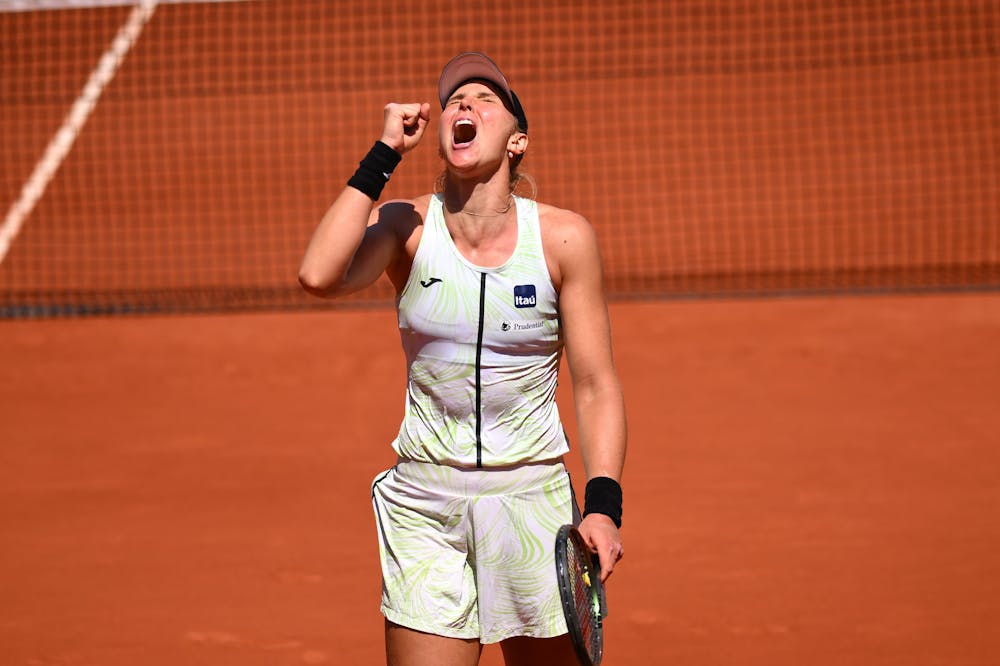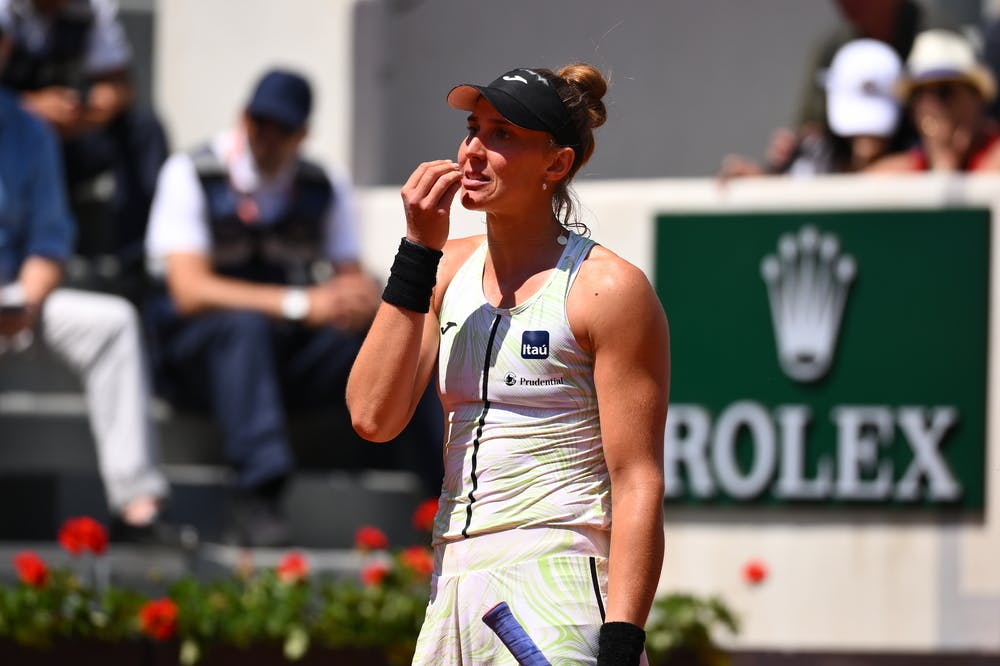Resilience and resurgence
A girls’ doubles finalist at Roland-Garros in 2012 and 2013, Haddad Maia broke into the top 100 in 2017.
But she also spent long stints sidelined with injuries and while she was out of the game Kuerten wrote and encouraged her to keep fighting. Resilience, she said, is one of her finest qualities.
“I think everyone has [their] own way. I had injuries. I had four surgeries also,” she said.
“So it's not easy to come back, but I think that's why I'm very strong when I play [for] three, four hours.”
Haddad Maia’s inner-strength is beyond dispute and that trait, when combined with her superb shotmaking, has taken her towards the top over the last year.
The left-hander’s ability to switch the pace and alter the angles from one shot to the next was on show against Sorribes Tormo on Monday.
Haddad Maia’s big breakthrough came when claiming what an English journalist described as the “rain-cloud double” in Nottingham and Birmingham last year.
 ROLAND-GARROS
18 May - 7 June 2026
ROLAND-GARROS
18 May - 7 June 2026



